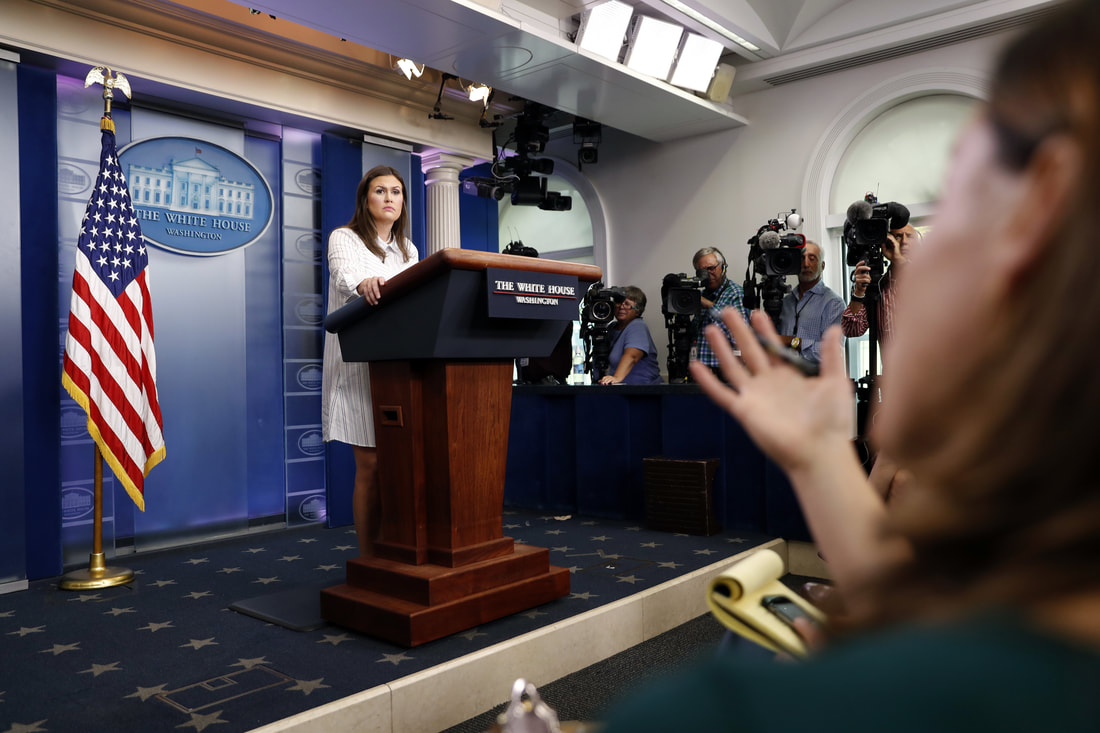|
The sources we analyzed on Congress’ joint resolution on the violence in Charlottesville accurately reported the contents of the bill. However, they gave more weight to the part of the bill that calls for Trump’s condemnation of white supremacists than they did to the practical steps the bill proposes to reduce violence (e.g. improving reporting of hate crimes and conducting thorough investigations of them). The emphasis may suggest that whether Trump denounces these groups or not is of higher import. In some outlets, condemnation became the focal point. For example, Al Jazeera’s headline said, “Congress challenges Trump to address white supremacy.” Reuters emphasized this in its headline as well, and dedicated its lead paragraph to it: The U.S. Congress passed a resolution late on Tuesday calling on President Donald Trump to condemn hate groups after Trump was criticized for his response to the violence at a white nationalist rally in Charlottesville, Virginia, a month ago. Why the media reported on this portion of the bill is understandable. Lawmakers from both major parties, business leaders and foreign heads of state criticized Trump’s remarks last month, saying his comment that there was “blame on both sides” did not sufficiently denounce the white supremacist groups that were in Charlottesville. If Congress passes a resolution calling for him to denounce those groups, that’s important to know. There’s also value in the public knowing the president’s position on the events, and a statement could comfort those who were directly affected by them. Given Trump’s position and authority, a public denouncement could also influence the decisions of people who consider enacting violence in the future. That said, it wouldn’t directly stop people from choosing hateful acts. As we said in a recent article, condemnation cannot cause less hate and violence. Yet this is an underlying assumption in these articles, and in some of the sources they cite. Considering the criticism Trump received after not condemning the groups in Charlottesville (which all the articles mention), and that the bill is intended to address the type of violence that occurred, when you put the two together, it could suggest that a condemnation now may address the problem. The articles support the assumption through the prominence they give to the subject both in positioning and amount of coverage, and also through the use of vague, dramatic language to describe it. For instance, The Washington Post wrote that the bill “will be presented to Trump for his signature in an effort by lawmakers to secure a more forceful denunciation of racist extremism from the president.” The phrase “more forceful denunciation” isn’t precise and implies Trump didn’t condemn the groups forcefully enough when he spoke after the incident. Had he done so, would we be closer to solving the problem? Al Jazeera offers another example, writing that human rights experts at the U.N. “called on the US and its leadership to ‘unequivocally and unconditionally’ condemn racist speech and crimes, warning that a failure to do so could fuel further violent incidents.” This states that not condemning violent acts could incite more of them, which may imply that denouncing can prevent them. This doesn’t follow. As noted above, there may indeed be benefits from Trump making this type of public statement, but to confuse this with an assumption that it can solve hate and violence could perpetuate the problem. It may suggest that whether this type of violence continues depends on the president’s words or his government’s actions. Ultimately, all Americans share responsibility for the violence in our communities. In our society, we often blame specific individuals or groups for the existence of hate and violence, without considering how everyone participates. This perspective can become compounded and harder to see when it’s promoted in the media, or when news outlets don’t explore other points of view. In this case, for the outlets to make Trump’s condemnation the main focus of the coverage could distract us from examining others’ responsibility in the matter, as well as our own. Humanity has been trying to solve the problem of violence for millennia. If we are to build a country where “there is no place for hate and violence,” as Rep. Gerry Connolly put it, it may be helpful to examine the problem through critical thinking and with a willingness to look at our own responsibility — and hold the media to this standard, too. Without this, we may miss exploring new ways of addressing the issue. Comments are closed.
|
Jens Erik GouldJens is a political, business and entertainment writer and editor who has reported from a dozen countries for media outlets including The New York Times, National Public Radio and Bloomberg News Archives
February 2018
Categories
All
|

 RSS Feed
RSS Feed